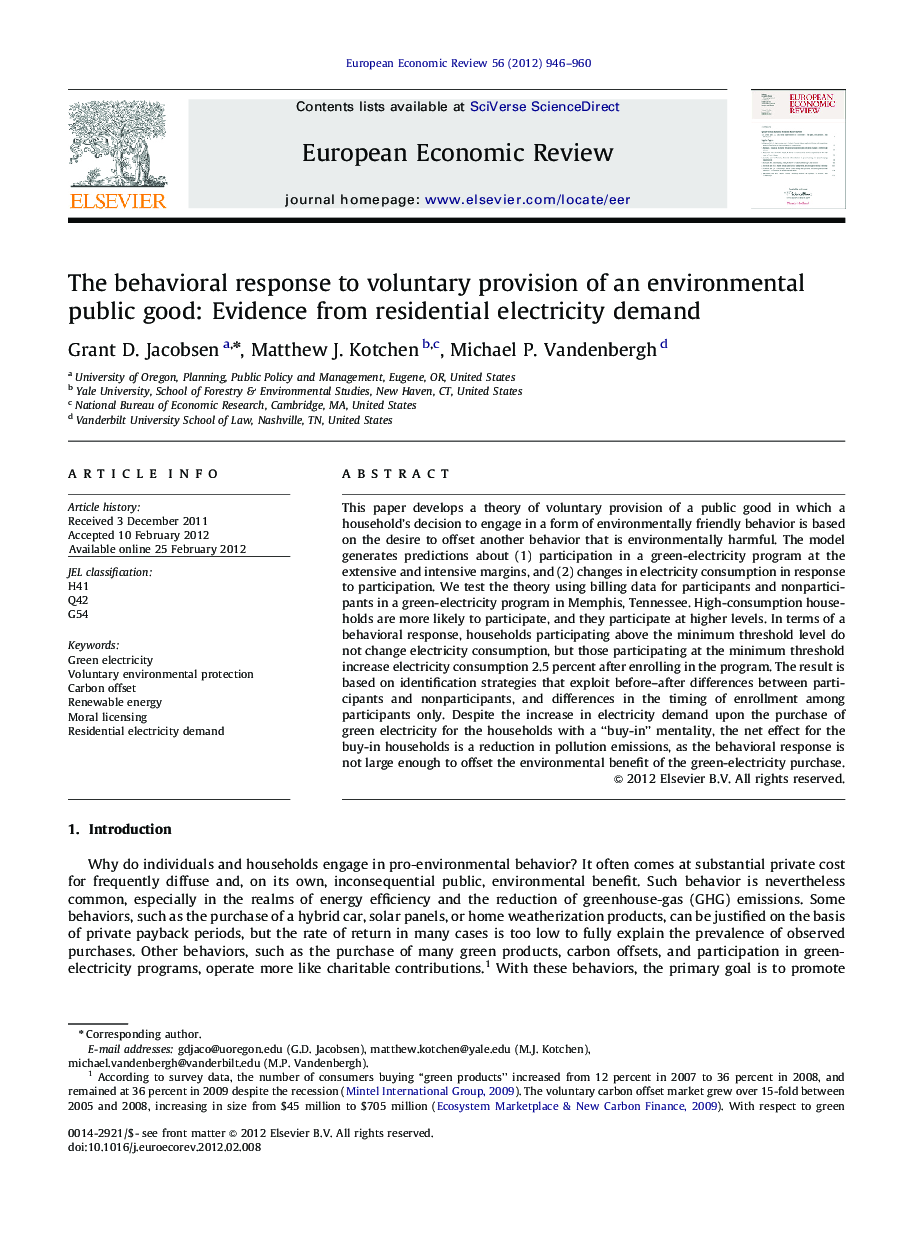| کد مقاله | کد نشریه | سال انتشار | مقاله انگلیسی | نسخه تمام متن |
|---|---|---|---|---|
| 5067188 | 1372574 | 2012 | 15 صفحه PDF | دانلود رایگان |

This paper develops a theory of voluntary provision of a public good in which a household's decision to engage in a form of environmentally friendly behavior is based on the desire to offset another behavior that is environmentally harmful. The model generates predictions about (1) participation in a green-electricity program at the extensive and intensive margins, and (2) changes in electricity consumption in response to participation. We test the theory using billing data for participants and nonparticipants in a green-electricity program in Memphis, Tennessee. High-consumption households are more likely to participate, and they participate at higher levels. In terms of a behavioral response, households participating above the minimum threshold level do not change electricity consumption, but those participating at the minimum threshold increase electricity consumption 2.5 percent after enrolling in the program. The result is based on identification strategies that exploit before-after differences between participants and nonparticipants, and differences in the timing of enrollment among participants only. Despite the increase in electricity demand upon the purchase of green electricity for the households with a “buy-in” mentality, the net effect for the buy-in households is a reduction in pollution emissions, as the behavioral response is not large enough to offset the environmental benefit of the green-electricity purchase.
⺠Develops and tests a theory of participation in a green electricity program. ⺠Pre-enrollment consumption is positively associated with participation on the extensive and intensive margins. ⺠Households participating above the minimum threshold level do not change electricity consumption. ⺠Households participating at the minimum threshold (“buy-in” households) increase electricity consumption by 2.5 percent. ⺠For “buy-in” households, the net effect of participation remains a reduction in emissions.
Journal: European Economic Review - Volume 56, Issue 5, July 2012, Pages 946-960